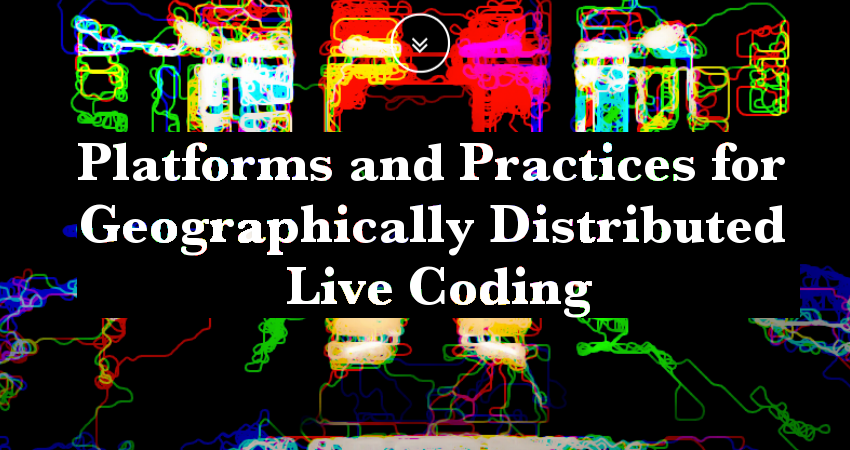Workshop: Platforms and Practices for Geographically Distributed Live Coding

This is a workshop related to the International Conference on Live Coding 2019.
In this workshop session, we will share, try, and extend practices developed in two recently formed, geographically distributed live coding ensembles: the globally distributed ensemble SuperContinent where each member is based in a different continent, and a pan-Canadian live coding ensemble based in different academic programs where sound, music, or programming are taught. Both ensembles are being launched as part of the project “Platforms and practices for networked, language-neutral live coding”, supported by a 5-year grant from Canada’s Social Sciences and Humanities Research Council. Our ICLC 2019 workshop will present the early results of this project, while also extending the collaborative networks around it.
The project aims to identify and respond to the distinctive requirements of live coding ensembles that bring together people of quite different artistic priorities, as well as the distinctive requirements of live coding ensembles that are “highly” and “definitionally” geographically distributed. In addition to the formation of the two parallel ensembles, the project approaches these questions by extending Estuary, a platform for collaborative live coding. We retain key development strategies and insights from the first years of the Estuary platform (including developing for the browser using the functional programming language Haskell) while scaling up to a language-neutral or multi-lingual approach. Estuary is rapidly becoming a host to multiple, unique and ephemeral languages, designed around the momentary needs and ideas of these (and other) ensembles.
In live coding, algorithms are notated in code in order to produce sound, visuals, dance or other poetic forms. Almost invariably, the code is shared with an audience alongside the result of that code. As such, live coding begins from a relatively distributed structure — code and result — that lends itself to collaboration and learning. Co-performers and audience members alike have access to the code, which then becomes an object for potential shared concern and understanding. Our research questions in this context are focused on the specific possibility of designing new programming notations (and collections of such notations, i.e. languages) that support the unique needs and possibilities of collaborative, networked live coding: What kinds of notations (i.e. language elements, graphical user interfaces, assistive and analytical displays, etc) explicitly support real-time collaboration on artistic code? What kinds of notations can be designed around the specific genres and musical ideas that might be advanced by diverse ensembles, and how can environments and platforms for artistic live coding optimally support the coexistence and interaction of distinct (or even contradictory) notations? Under what circumstances and with what supports can distributed, collaborative ensembles propose new notations, and can this specific type of creative activity (the creation of languages for live coding, essentially) become something that happens quickly, fluidly and ephemerally?
Concretely, workshop activities will include tutorials on various multi-lingual affordances of Estuary, demonstrations and assistance with forming and configuring “ensembles” within Estuary (the platform hosts many simultaneous “ensembles”, each of which can have multiple “views”, ie. ways of being rendered), headphone jams between subgroups of workshop participants, and multiple sessions (within the workshop) for discussion and development of ideas and practices drawn from the experiences and possibilities of these two new ensembles. Estuary link: http://github.com/d0kt0r0/Estuary



 Medialab-Matadero Madrid
Medialab-Matadero Madrid